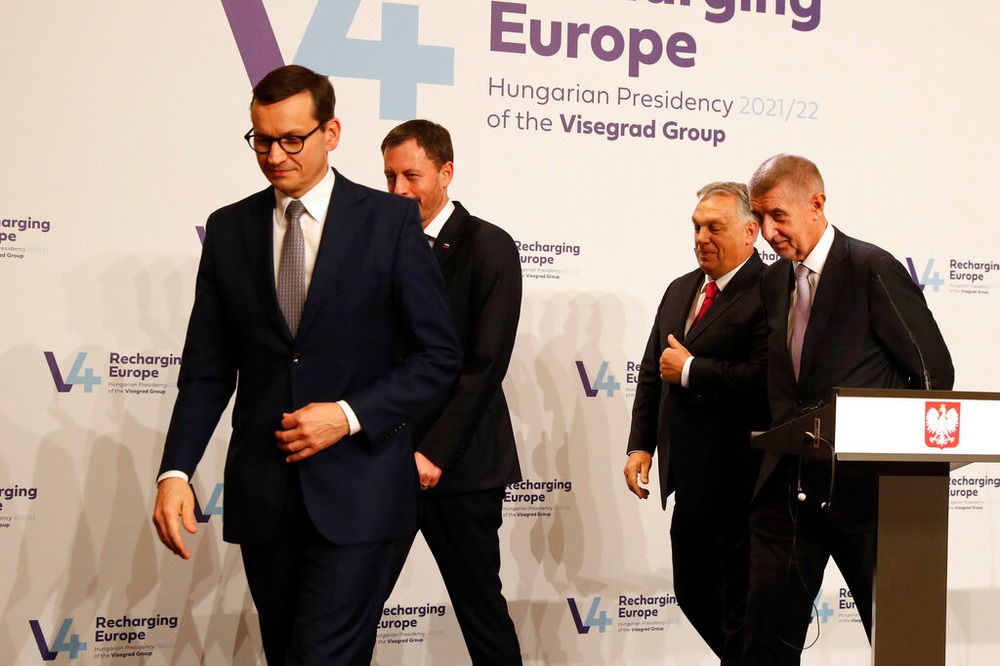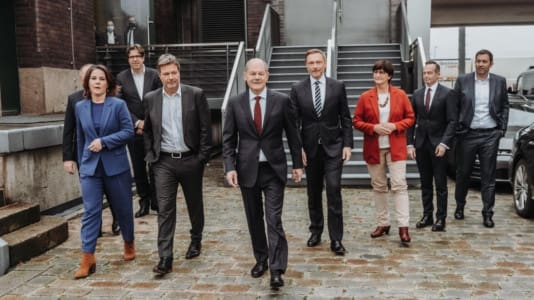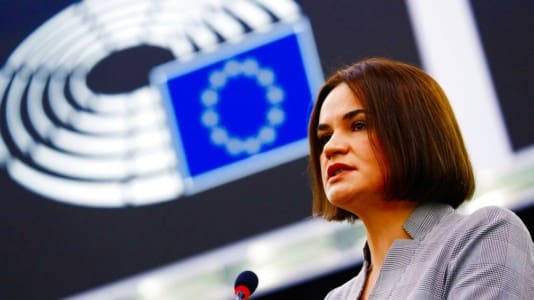The Baltic States on Sunday, the leaders of the V4 in Budapest and Croatia on Tuesday, France and Slovenia on Wednesday, Berlin on Thursday, and London on Friday – PM Mateusz Morawiecki is continuing his diplomatic offensive in Europe. The end goal of his political “tour de Europe” is becoming increasingly clear.
During a joint press conference with Croatian PM Andrej Plenković, Morawiecki outlined four key elements which are destabilizing the situation in Europe: the artificial migration crisis, the concentration of Russian troops near Ukraine and in Kaliningrad, high prices of energy caused by high costs of permissions for CO2 emission, and gas price manipulation by Gazprom. The last point was disinformation involving a campaign to spread fake news, also in the context of fighting the pandemic, clearly meant to divide Europe at both the state and EU levels.
“All of these elements, which are like pieces of a puzzle, can be connected to form one cohesive image,” he said. This is the main goal of the PM’s offensive: “to point out the whole picture and show the risks associated with it.”
In other words, to inform people of the massive iceberg sitting in the way of us all.
Travel and visits are necessary in order to reach this goal. Personal talks are key, and such visits also build a consciousness of the threat among the public opinions of various states. Moreover, this also usually has a mobilizing effect on politicians.
Poland is appealing for unity, cooperation, and the serious treatment of established alliances. In Budapest, Morawiecki defined the situation as follows, perhaps referring to Czechia’s disloyal behavior when it came to the Turów mine: “We can see actions which are trying to push us into a conflict and to create new conflicts between EU states and between Visegrad Four states. Thankfully, this has been unsuccessful,” he said.
Poland is telling Europe in no uncertain terms: the situation is very serious and we must maturely face these challenges in order to properly define the situation and set our priorities straight.
Above all, Europe must stop dealing with secondary issues. It is preposterous that while Poland is defending the common EU border against hybrid attacks – when the possibility of all-out war in the region cannot be excluded – it is simultaneously being attacked by the West in minor matters.
Therefore, Poland has begun to build a broad coalition, starting with a regional one which could later become a pan-European one. Poland wants to forge the current wave of political solidarity due to Russia and Belarus’s attacks into something more: a turning point. It wants to bring the EU back onto the tracks of responsibility and maturity in the face of serious challenges. Perhaps it also wants to encourage the withdrawal from such terrible decisions like Nord Stream 2.
Of course, none of this will be easy. Each country has its own interests, and many do not want to step out of line, as that is much riskier than following the mainstream. EU decision-makers rarely strike when the iron is hot, preferring to kick the can down the road.
But it must be attempted when we are at such a critical moment in history.






